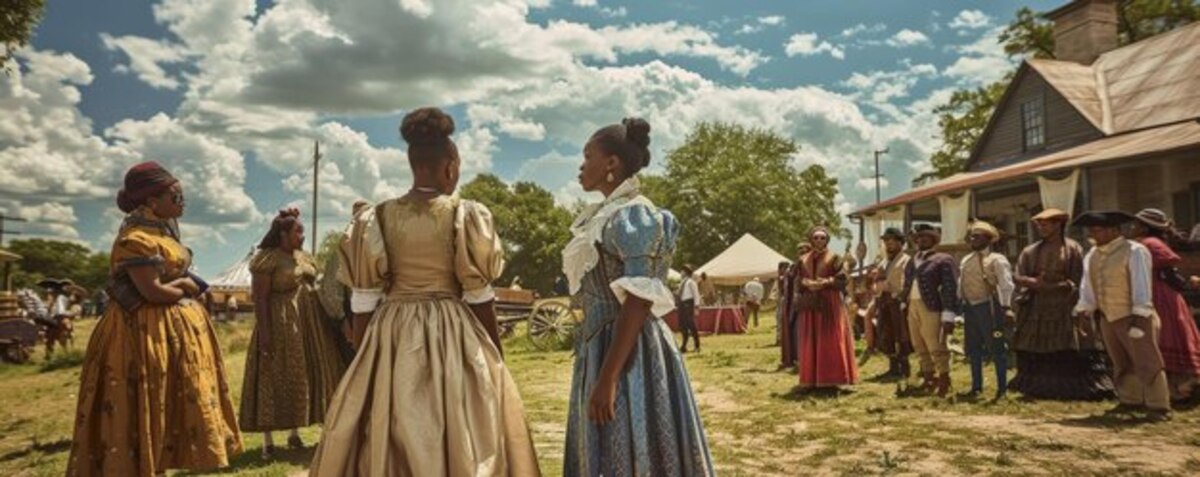The Power of Local History in the Value of Your Property

The value of a property goes beyond its physical characteristics; local history plays a crucial role in its appreciation. Knowing the legends, traditions, and events that have shaped your neighborhood will not only enrich your experience as a homeowner but will also enhance the value of your investment. In this article, we will explore how the history of communities can significantly influence the location and appreciation of your real estate in Costa Rica. Get ready to discover the hidden power behind local history!
1. The emotional connection: Why does local history matter?
The emotional connection established with a property goes beyond its dimensions and finishes; it is deeply rooted in the local history surrounding it. The legends and traditions of a community can evoke feelings of belonging and pride, transforming a simple physical space into a home filled with meaning. This shared narrative among the residents not only creates social bonds but also fosters a sense of collective identity that can positively influence the property's value. When potential buyers perceive this emotional connection, they are more likely to value the property not just as an investment, but as part of a rich cultural heritage.
Additionally, knowing the local history can open doors to unique opportunities to enjoy community events and activities that enrich daily life. For example, traditional festivals or craft markets can attract both residents and visitors, thus increasing interest in the area and its overall appeal. These elements contribute to creating a vibrant and dynamic environment where real estate values tend to appreciate over time. In summary, by immersing oneself in local stories, one not only gains an emotional connection to the place; one also invests in a stronger financial future thanks to the continuous appreciation of the surroundings.
2. History and culture: The appeal of living in a place with heritage
The history and culture of a place are elements that transcend time, creating an emotional connection between the residents and their environment. Living in a community with a rich historical legacy not only offers a sense of belonging but also fosters a unique cultural identity. Local traditions, festivities, and stories from the past become part of daily life, turning every corner into a living testament of what the place has been. When valuing a property, buyers often look for these cultural characteristics as indicators of quality of life; therefore, communities with history tend to have lasting appeal in the real estate market.
Additionally, historical heritage can positively influence the appreciation of a property. Areas that have preserved their architecture and traditions tend to be more sought after, as they offer an authentic experience that many wish to live. Annual historical or cultural events attract both tourists and new residents interested in becoming part of these legacies. Thus, the value of properties is not only increased by their design or physical location, but also by the cultural richness they provide. Investing in a property within a neighborhood with history can result not only in long-term economic benefits but also in the opportunity to be an active part of that collective narrative that resonates throughout the community.
3. How historical events can increase real estate value
Historical events that have taken place in a community can be a determining factor in the perception of the real estate value of a property. For example, if a neighborhood was the site of a significant event, such as a historical battle or the birth of a prominent figure, it is likely to attract buyers interested in the culture and legacy of the area. Properties located near these historical points often experience an increase in demand, as potential owners seek not only a home but also a connection to the history and local traditions. This can translate into higher prices in the market and sustained appreciation over time. Furthermore, historical events can contribute to the creation of a strong community identity that attracts both residents and tourists. When communities celebrate festivals or commemorations related to their history, they generate interest and attention towards the area, which can be beneficial for local real estate. For example, if a locality is known for its traditional fairs or historical reenactments, this can enhance the area's appeal and foster additional investments in infrastructure and services. In this way, the historical impact is reflected not only in the cultural narrative of the place but also in its economic vitality and its capacity to maintain or increase its real estate value.
4. The influence of historical tourism on property appreciation
Historical tourism has become an economic engine for many communities, and its impact on property value is notable. When a region has a rich cultural heritage, with monuments, museums, and historical sites, it attracts visitors seeking to explore their roots and traditions. This influx of tourists not only benefits local businesses but also generates an increase in housing demand. Properties located near these tourist spots tend to experience a rise in their value due to the perception of exclusivity and appeal that comes with living in an area with history.
Additionally, historical tourism promotes the development of infrastructure and services that improve the quality of life in the community. Investment in transportation, restaurants, and recreational activities often accompanies the growth of tourism, which in turn makes nearby areas more desirable. Property owners can capitalize on this phenomenon by considering local history as a valuable asset for their real estate investments. The emotional connection to the past not only increases interest in living in these historical areas but also establishes a unique narrative that can significantly enhance the long-term value of properties.
5. Local narratives: Creating a unique identity for your neighborhood
Local narratives are the heart of every neighborhood, weaving a rich tapestry that connects residents to their surroundings. These stories, which can range from ancient legends to everyday anecdotes, create a sense of belonging and community. By knowing and sharing these stories, homeowners not only become guardians of collective memory but also bestow their property with significant emotional and cultural value. This deep connection to the history of the place transforms a simple house into a home filled with meaning.
Additionally, fostering local narratives can be a powerful draw for potential buyers and investors. Properties located in neighborhoods with a unique identity tend to stand out in the real estate market, as new owners seek more than just physical spaces; they want to be part of a vibrant community with character and history. Community events, festivals, and neighbor groups dedicated to preserving these traditions not only enrich daily life but also increase property value by creating an environment where people want to live and settle. Thus, by cultivating and celebrating local stories, both community well-being and the economic value of properties are enhanced.
6. Community projects: Reviving history and improving the environment
Community projects are a powerful tool for reviving history and improving the environment of a neighborhood. By involving residents in the planning and execution of cultural initiatives, such as historical festivals, murals representing local legends, or the restoration of landmark buildings, a sense of belonging and pride is created among the inhabitants. These projects not only celebrate the rich cultural heritage of the area but also promote social cohesion, which can result in a safer and more attractive living environment. This type of community involvement can significantly increase interest in property in that area, elevating its value as more people seek to be part of a vibrant and character-filled community.
Additionally, community projects can boost local economic development by attracting tourists interested in learning about the history and culture of the place. The creation of historical routes, artisan markets, or workshops where traditional techniques are taught not only revitalizes the physical space but also encourages local commerce. As these projects gain traction and recognition, it is likely that nearby properties will experience an increase in demand. Potential buyers increasingly value areas with a clear and active identity; therefore, investing time and resources in these initiatives can be beneficial for both current homeowners and those interested in acquiring real estate within dynamic communities full of history.
7. Success stories: Properties that increased in value due to their history
The history of a property can be a determining factor in its valuation, and several local cases illustrate this phenomenon. A notable example is that of an old farmhouse in a Costa Rican community that, after being restored, became a tourist attraction due to its legends about former inhabitants and local traditions. This new approach not only revived the narrative of the place but also attracted both visitors and new residents interested in living surrounded by that rich cultural heritage. As a result, the values of surrounding properties increased considerably, demonstrating how history can bring life and value to real estate.
Another emblematic case is that of a historic neighborhood that underwent a revitalization process focused on preserving its colonial architecture and significant narratives. By promoting cultural events and festivals that celebrate the neighborhood's roots, greater demand for properties located there was generated. Buyers are not only looking for physical space; they want to be part of a vibrant narrative that connects them with the past and offers a sense of community. Thus, this revaluation driven by history has allowed both current and future homeowners to see their investment as an integral part of a broader local legacy.
8. Investing in areas with a rich cultural tradition: A smart strategy
Investing in areas with a rich cultural tradition presents itself as a smart strategy for those looking to maximize the value of their property. Communities that have kept their traditions, festivals, and customs alive are highly attractive to both residents and tourists. This interest in culture not only fosters a sense of belonging among the inhabitants but also creates a vibrant and dynamic environment that can be decisive when valuing a property. In this sense, local history becomes a tangible asset that can enhance the appreciation of real estate in these areas.
Additionally, areas with a strong cultural identity often have infrastructure and services that support community development, such as museums, cultural centers, and artistic events. These elements not only enrich the quality of life for residents but also attract new buyers and investors interested in becoming part of that unique community. The combination of history and culture creates an additional appeal that can lead to sustained appreciation of real estate value over time. Therefore, when considering a real estate investment, it is essential to evaluate not only the physical characteristics of the property but also the historical and cultural context surrounding it.
9. How to research local history before buying a property
Researching the local history before buying a property is a crucial step that can affect both your quality of life and the long-term value of your investment. To start, you can dive into reading books or articles about the history of the area, as well as consulting local historical archives and museums. These resources often provide valuable information about significant events, cultural influences, and urban transformations that have shaped the neighborhood over the years. Additionally, talking to long-time residents can offer you anecdotes and unique perspectives that are not documented anywhere.
Another effective tool for research is the use of digital platforms and social media focused on the community. There are groups where residents share stories, traditions, and even local legends that can provide you with a deeper insight into the environment. You can also attend community meetings or cultural events to meet your future neighbors and learn about the social dynamics of the place. By understanding how the community has evolved and what aspects are valued by its inhabitants, you will be better prepared to make informed decisions about your real estate purchase, ensuring not only a good economic investment but also a home where you feel connected and integrated.
10. Future and past: Balancing modernity with historical heritage
The balance between modernity and historical heritage is essential for the sustainable development of communities. In a world where innovation and technological advancement are constant, many localities face the challenge of preserving their cultural identity while adapting to the demands of the present. Properties with a historical legacy, whether through their architecture, traditions, or significant events, offer added value that transcends the material. Today's buyers seek not only a home but also an emotional connection with their surroundings; therefore, spaces that successfully integrate elements of the past into a modern context tend to be more attractive and valuable in the market.
Additionally, fostering interaction between the old and the new can enrich the community experience. Projects that rehabilitate historic buildings or create public spaces inspired by local history not only revitalize urban areas but also promote a sense of belonging among residents. This synergy between modernity and heritage benefits current owners by increasing the value of their investments and ensures that future generations can enjoy and learn from their legacy. Thus, balancing these two aspects is key to keeping local history alive while building a prosperous and vibrant future for all.



